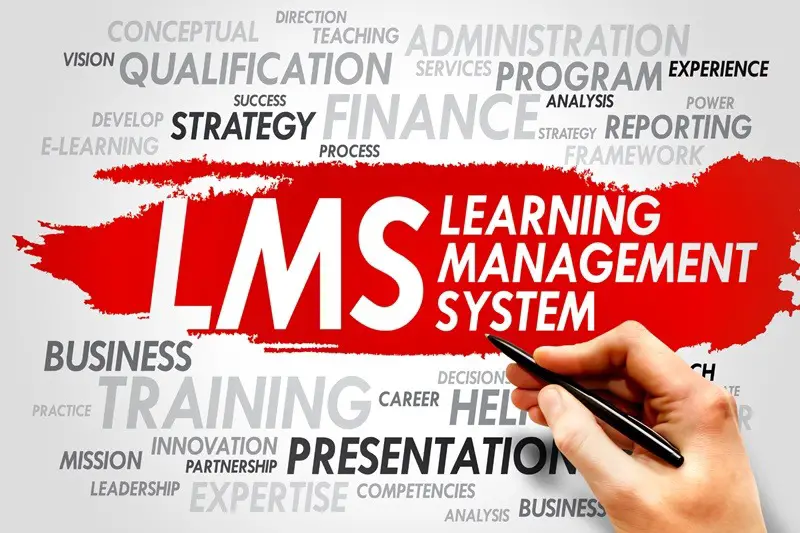Today’s fast-changing enterprises need smart solutions, to educate their employees, which is much more productive than traditional solutions. A Learning management system provides the learning and development of the business by providing adequate training to their employees.
So, it is critical that you pick an LMS system which covers all the essential features as follows,

1. Analytics
As you have to ability to manage your online training courses to see if they are doing well, then the users also have this feature using which they can easily track their progress in all the courses. The learning management system provides you with the freedom to monitor online training progress on individual and group levels.
2. Intuitive user interface
No matter how many features you add to your LMS software if the user is unable to navigate through the platform, then it is futile. The same goes for when you are implementing an LMS system in your corporate offices your team shouldn’t have to face a lot of work for just learning the software.
For this reason, it is essential that you get the opinion of your team about the wants and requirements. So when choosing an LMS system for them, you have a clear objective in mind.
3. Easy to manage remote learners
The learning management system comes with the ability that anyone from anywhere irrespective of their geographical location can take an interest in their course and get certified also. Now talented teachers find it very easy to distribute their content and sell their courses to students spread over all the continents. They can even organize a virtual classroom and students can learn from them through live video streaming.
4. Responsive design
If the LMS platform has support for multiple devices, then it gives the users the benefit of using the eLearning anywhere, on any device they are available. Even those who prefer to use their mobiles can easily access the learning materials.
The LMS system will automatically show you the most suitable version for your device. So it is essential that the LMS platform you choose has a responsive design. For example, if you open the eLearning platform on your phone, if the platform is responsive, then images will be shown suitable for mobile screens. Otherwise, the content won’t load properly, and the user will end up being disappointed.
5. Gamification features
Today many of us have difficulty with having a longer engagement with anything for more extended periods, and this is more common with teenagers. So there must be some kind of incentive to engage in your online training course.
Also, it is the same with employees using LMS systems. The addition of gaming features will provide users with motivation in the form of high scores, badges, and promotion to new levels and ranks. This creates a healthy competitive environment that boosts the learning process of individuals
6. Save time and resources
Neat and precise documentation makes the LMS systems more appropriate options to traditional classrooms and content distribution. It also makes the success to learning new courses more streamlined for the users.
Now using the LMS systems, the users don’t have to face the extreme costs of traditional education and the massive amount of relocation costs coming with them. With learning becoming so convenient, conventional classrooms face a severe threat.
7. Safe and secure
It is a must that the LMS system has proper security features. It does not contain only the personal data of the learner, but it also includes the proprietory study materials that are usually under the company’s leadership.
Some LMS systems have a strict limit to the number of users that can access the platform so any other users cannot access the system without any authorization. It is also necessary that the developers restrain the users from making changes to any of the course materials.
8. Testing and assessment
Flexible testing and evaluation provide the learners with an opportunity to test the knowledge learned by them. The developers can also provide the user with the option to answer multiple-choice questions or theory style questions. The test results then can be stored, and the user can keep tracking how they are improving their grades by comparing the past and present test results.
9. Integration
It is necessary that the LMS platform you are choosing supports integration to various other systems present in the organization. The ability to share data across other departments is a must-have feature for the LMS system.
- You might need to integrate it with any of the following:
- Workforce management
- Talent Management
- Enterprise resource planning (ERP) systems
- Customer relationship management (CRM)
- Payment Processor
- Compliance Platform
10. Support services
Based on the capacity of your eLearning team and the complexity of the tool you need to choose what kind of support you will need. Different LMS providers offer different types of support. Many LMS vendors host online discussion forums that allow you to connect with other users. It also allows you to post questions online so the person with answers can reach you quickly and your query is also solved.
You can also get more advanced options such as tool-free numbers which gives you direct access to talk with a trained customer service executive.
When you think about it, there is no industry that doesn’t need an LMS system. Depending on the business sector you are in, the features of an LMS system can vary. Maybe your industry needs sale and soft skill training, or perhaps marketing training; therefore various industries have various needs, but in the end, the LMS software leads every business to a path towards growth.
[Image via: Google Images]
